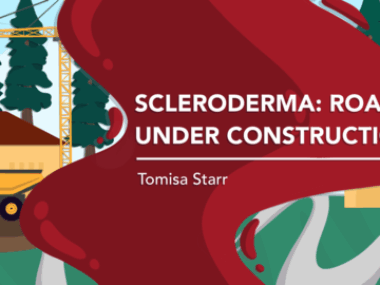Antegrin Expands Portfolio of Integrin-Targeting Drugs to Treat Scleroderma and Other Fibrotic Diseases
Written by |

Antegrin Therapeutics announced that it has acquired the licenses to a series of drugs targeting integrins. With the addition of these drugs, Antegrin hopes to be one step closer to the commercialization of anti-integrin therapies for the treatment of scleroderma and other fibrotic diseases.
Integrins are cell surface receptors attaching cells to each other or to the mesh-like structure surrounding them, known as the extracellular matrix. Over the past 10 years, it has become increasingly clear that this function makes them crucial for the fibrotic processes. Studies have shown that several integrins can activate the prototypical fibrotic signaling molecule TGF-b — a fact of interest to drug developers.
Studies on a preclinical fibrosis model where researchers used an oral drug, representative of the new series of integrins, offered positive proof-of-concept results.
To identify limitations in targeting integrins individually, the St. Louis-based company aims to simultaneously block all the integrins that researchers believe play a role in fibrosis, and study the effects. Early research on the broad-spectrum integrin blockers has shown that the approach is efficiently slowing fibrosis in several fibrotic models, including lung, liver, renal, pancreatic, and surgical implant fibrosis — results that are relevant for numerous disease conditions, in addition to scleroderma.
The compounds Antegrin acquired were originally discovered at the Center for World Health & Medicine at Saint Louis University, and are all compounds that can be taken orally.
“This technology recapitulates the profile of Antegrin’s earlier chemical series in terms of biological mechanism but represents a breakthrough in terms of drug-like properties,” George Capps, CEO of Antegrin, said in a press release. “The licensing of these compounds is an important step towards Antegrin’s commercialization of effective integrin-targeting therapies.” He added that the company soon hopes to select its first drug candidate for clinical development.
“This latest series of rationally designed, orally bioavailable compounds strengthens Antegrin’s portfolio of integrin antagonists and expands the range of fibrotic diseases that can be treated,” added Rajesh Devraj, PhD, chairman of Antegrin’s board. “We congratulate the scientists at the Center for World Health & Medicine for their innovation and look forward to building on their ground-breaking research as we advance our product candidates toward the clinic.”





